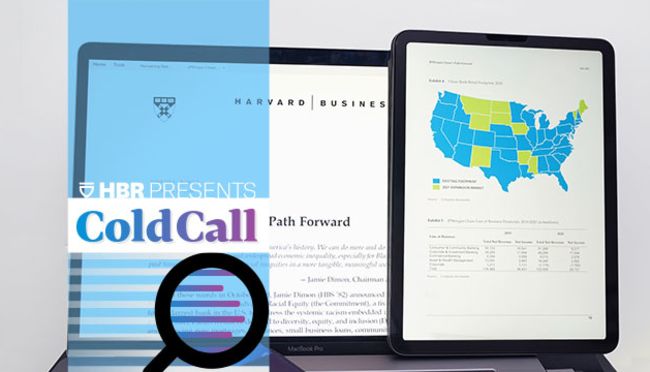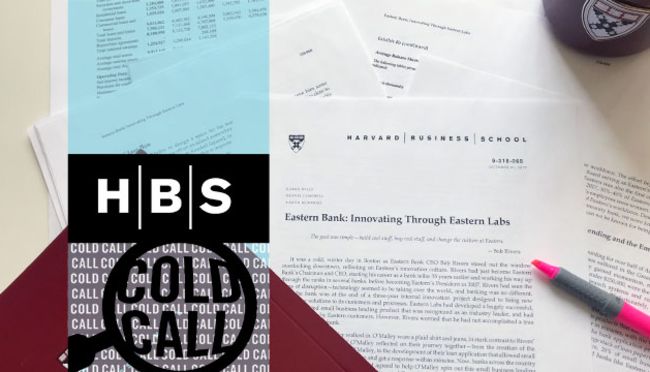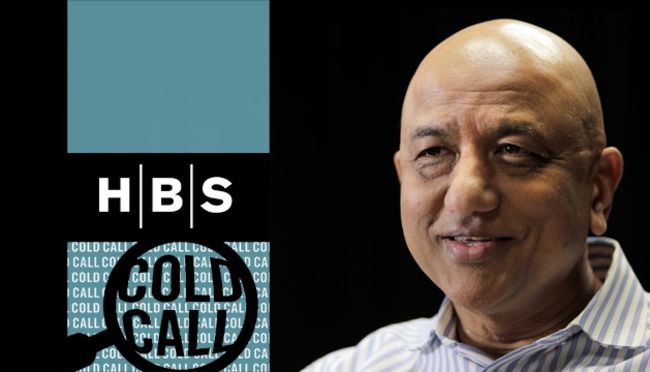Banks and Banking →
→
- 14 Mar 2023
- In Practice
What Does the Failure of Silicon Valley Bank Say About the State of Finance?
Silicon Valley Bank wasn't ready for the Fed's interest rate hikes, but that's only part of the story. Victoria Ivashina and Erik Stafford probe the complex factors that led to the second-biggest bank failure ever.

- 18 May 2022
- Research & Ideas
Are Banks the ‘Bad Guys’? Overdraft Fees Are Crushing Low-Income Customers
Payday lenders have been accused of exploiting poor consumers, but traditional banks exact a similar toll through overdraft fees. Research by Marco Di Maggio and Emily Williams shows how seemingly innocuous checking accounts can become vehicles for financial distress.

- 21 Sep 2021
- Cold Call Podcast
Why JPMorgan Chase Is Committed to Improving Racial Equity in Banking
In 2020, JPMorgan Chase & Co. announced a $30 billion, “Commitment to Advance Racial Equity.” This included investments in housing, small businesses, and financial literacy across the U.S., as well as in diversity, equity, and inclusion initiatives within the bank. Harvard Business School Professor Emeritus Joe Bower and case protagonist Alice Rodriguez, head of community impact at JPMorgan Chase, discuss the implementation of that commitment and how it aligns with the bank’s longer-term growth strategy in the case, "JPMorgan Chase’s Path Forward." Open for comment; 0 Comments.

- 08 Feb 2021
- Working Paper Summaries
In the Red: Overdrafts, Payday Lending, and the Underbanked
Low-income customers turn to payday lenders and check cashers for basic financial needs when traditional banks push them out of the system through high overdraft fees and other penalties. Reducing overdraft fees improves consumers’ overall financial health and access to cheaper credit.

- 10 Jul 2020
- Working Paper Summaries
Making Economics More Useful: How Technological Eclecticism Could Help
This paper shows how tools, such as simulations used to design new technologies, can facilitate collaborative economic policy judgments. The paper forms part of a broader, ongoing study of knowledge in practical fields such as engineering, medicine, and business.

- 08 Jun 2020
- Working Paper Summaries
Loan Types and the Bank Lending Channel
Practitioners commonly refer to four distinct loan types: asset-based loans, cash flow loans, trade financing, and leasing. It is important to account for these differences in loan type in order to analyze the economic significance of credit market disruptions.

- 05 Nov 2019
- Working Paper Summaries
The Economic Effects of Private Equity Buyouts
Private equity buyouts are a major financial enterprise that critics see as dominated by rent-seeking activities with little in the way of societal benefits. This study of 6,000 US buyouts between 1980 and 2013 finds that the real side effects of buyouts on target firms and their workers vary greatly by deal type and market conditions.

- 08 May 2019
- Working Paper Summaries
Bank Boards: What Has Changed Since the Financial Crisis?
Since the 2008 financial crisis, bank boards have not improved their cultural or gender diversity compared to other companies, nor are they better qualified than before the crisis. Outside directorships of bank directors and the extent of CEOs also being Chairman also remains the same. However, there is some evidence of better risk oversight both from managers and the board.

- 03 Apr 2019
- Book
Fintech's Game-Changing Opportunities for Small Business
In the new book Fintech, Small Business, & the American Dream, Karen Mills describes how technology is opening up new capital for entrepreneurs. Around the corner: The transformative benefits of AI and big data. Open for comment; 0 Comments.

- 20 Dec 2018
- Cold Call Podcast
Using Fintech to Disrupt Eastern Bank from Within
When Eastern Bank decided to battle a threat from new competitors, it hired a fintech executive to set up Eastern Labs and start innovating. Karen Mills discusses her case study on what happened next. Open for comment; 0 Comments.

- 15 Nov 2018
- Working Paper Summaries
Do Fire Sales Create Externalities?
This paper contributes to our understanding of the role of large institutional investors in securities markets, providing evidence that the structure of the mutual fund industry increases the risks of costly "fire sales."

- 11 Sep 2018
- Working Paper Summaries
IQ from IP: Simplifying Search in Portfolio Choice
Mutual fund managers solve their complex “search problem” for superior investable returns by tracking—and trading—on very particular sets of firms and insiders. These sets are chosen strategically and remain very persistent over time, as does the outperformance these insiders’ trades afford to the given fund managers.

- 12 Oct 2017
- Working Paper Summaries
The Decline of Big-Bank Lending to Small Business: Dynamic Impacts on Local Credit and Labor Markets
Between 2008 and 2014, the Top 4 banks sharply decreased their lending to small business. This paper examines the lasting economic consequences of this contraction, finding that a credit supply shock from a subset of lenders can have surprisingly long-lived effects on real activity.

- 26 Jun 2017
- Working Paper Summaries
Inventory Management for Mobile Money Agents in the Developing World
Mobile money agents in the developing world face a key inventory management challenge: How much cash and e-float should be held to minimize both stockouts and excess working capital? The authors develop two inventory models and show substantial inventory cost reduction with a large dataset of East African mobile money transactions.

- 01 Jun 2017
- Cold Call Podcast
Building India’s First $100 Billion Company
Startups welcome growth but are often strangled by it. In this podcast, Sunil Gupta discusses how entrepreneur Vijay Shekhar Sharma is meeting this challenge with his mobile payments company Paytm. Open for comment; 0 Comments.

- 08 May 2017
- Working Paper Summaries
Monetary Policy and Global Banking
Global banks commonly move funds across markets to respond to differential monetary policy changes. This paper finds that cross-currency flows affect the cost of foreign exchange hedging, ultimately affecting credit supply in different currencies. The traditional view of how global banks respond to local shocks is weakened and, for major currencies, breaks down.

- 02 May 2017
- Working Paper Summaries
The Cross Section of Bank Value
How do commercial banks create value? This paper represents the first attempt to empirically identify the primary determinants of cross-sectional variation in bank value. Among the findings: A bank's ability to produce deposits is by far the most important determinant in explaining cross-sectional variation in bank value.

- 30 Nov 2016
- Working Paper Summaries
The Stock Market and Bank Risk-Taking
It is clear that risk-taking by financial institutions is one of the main causes of financial crises and severe recessions. Yet we know relatively little about what gives rise to such risk-taking in the first place. This paper presents evidence that a focus on short-term stock prices induces publicly-traded banks to increase risk relative to privately-held banks. The findings provide support for the view that compensation schemes should require management to hold stock for longer periods to mitigate their incentives to pump up short-term earnings and the short-term stock price.

- 02 Aug 2016
- Working Paper Summaries
Financial Regulation in a Quantitative Model of the Modern Banking System
This study at the intersection of macroeconomics and banking explores the optimal regulation of banks. Studying and quantifying the effects of capital requirements in a model that features regulated (commercial) and unregulated (shadow) banks, the authors find that a higher capital requirement makes regulated banks safer, but does not affect the riskiness of shadow banks. The net benefit of such a policy would depend on the level of fragility of the unregulated banks.

Equity Bank CEO James Mwangi: Transforming Lives with Access to Credit
James Mwangi, CEO of Equity Bank, has transformed lives and livelihoods throughout East and Central Africa by giving impoverished people access to banking accounts and micro loans. He’s been so successful that in 2020 Forbes coined the term “the Mwangi Model.” But can we really have both purpose and profit in a firm? Harvard Business School professor Caroline Elkins, who has spent decades studying Africa, explores how this model has become one that business leaders are seeking to replicate throughout the world in her case, “A Marshall Plan for Africa': James Mwangi and Equity Group Holdings.” As part of a new first-year MBA course at Harvard Business School, this case examines the central question: what is the social purpose of the firm?